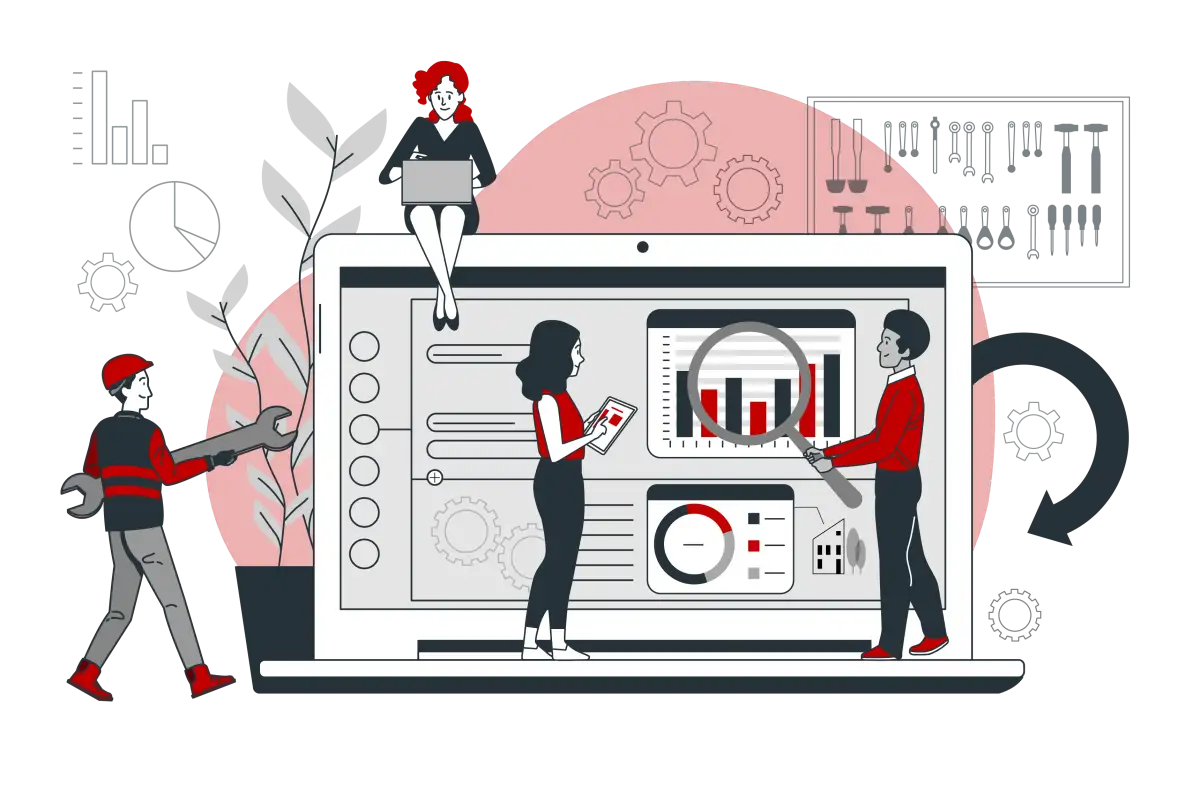EVALUATION
Digital Tools for the Evaluation and Optimisation of Sustainable Buildings
The demand for concepts related to climate neutrality and sustainability is of great importance for the future positioning of companies in terms of their competitiveness. Buildings are often responsible for a significant portion of climate-damaging emissions during construction and operation. To determine the optimisation needs regarding emission reduction, surveys, evaluations, and documentation are required, which involve the collection and analysis of large amounts of data. During the planning phase, digital tools such as Geographic Information Systems (GIS), and Building Information Modeling (BIM) allow for precise analysis, modelling, and simulation, while CAD software and parametric design assist in optimising designs. Innovative technologies like Artificial Intelligence, Virtual and Augmented Reality (VR, AR) support a holistic and sustainable approach to building design. To assess life cycle costs and sustainability, methods like Life Cycle Costing (LCC) and Life Cycle Assessment (LCA) or environmental impact assessment are used. During the construction phase, construction management tools, drones, and IoT-based monitoring improve efficiency and cost control. Automation and networking of building technologies and energy monitoring support the optimisation of building operations. The compilation on the topic of "Evaluation" provides information on which tools are easy to use and yield good results, highlighting their practical application to make planning and construction more efficient and environmentally friendly.
Icon sources: “Tools” icon (own illustration), Elements from Freepik, “Circular Economy” icon by Jonathan Wong, and “Digital Asset” icon by Soapi – from https://thenounproject.com, CC BY 3.0


